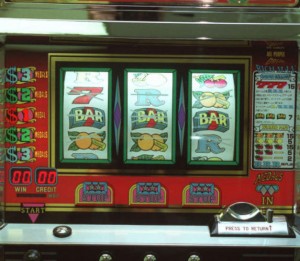To say the horse-racing industry is up in arms about the planned removal of thousands of slot machines from race tracks is an understatement.
It marks a huge change to the industry. For more than a decade, the provincial government, raceways and horse owners have shared revenue from slots at race tracks. That revenue now stands at $1 billion a year.
But in March, the Ontario government announced the arrangement would end. The slots are to be removed next year, and the sharing will be over. According to the province, slot machine proceeds being shared with the racing sector are instead needed for schools and hospitals.
That’s a major blow to the sector. It’s predicting significant job losses, anywhere from 30,000 to 60,000 jobs. Online petitions are imploring MPs to reconsider. The cover story in the latest issue of Better Farming magazine, released this week, calls the decision “a catastrophe in the making.â€
This situation raises many non-racing issues, too, not the least of which is the hypnotic lure of slot machines. If they didn’t generate so much money for all parties, their pending departure would cause a lot less panic. But the reality is that for some gamblers, the mesmerizing effect of slot machines is stupefying. It makes players almost trance-like, pulling levers, pushing buttons, watching graphics spin, almost oblivious to either the win or, more troublesome, the loss they are experiencing.
This hypnotic effect of casinos and slots in particular has long interested and bothered University of Guelph marketing and consumer studies researcher Prof. Karen Finlay. From her laboratory on Gordon Street in Guelph, just south of the university, she carries out studies on casino environments in a room that mimics parts of an Ontario casino, trying to understand how gamblers can become disassociated from reality as they get caught up in the slot machine experience.
Slot machines, wherever they end up, will continue drawing gamblers. And researchers such as Finlay will keep trying to make sure measures are in place to make gambling fun, not addictive.
I write about this issue in my Urban Cowboy column in the Guelph Mercury.
The photo is from the Toronto Star.


